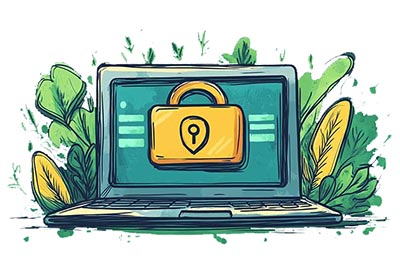Ensuring that your website is secure isn’t just an option—it’s a necessity. But why is having an SSL certificate so important? Let’s break it down.

The Basics of SSL Certificates
An SSL (Secure Sockets Layer) certificate primarily protects the data transmitted between the user's browser and the website's server by encrypting it.
An SSL certificate is essentially a security protocol that encrypts the data transmitted between your website and its users.
This means that sensitive information, such as passwords, credit card numbers, and personal details, is protected from hackers and other malicious actors.
When visitors see the padlock icon or "https" in the browser’s address bar, they know that your website is secure.
This not only builds trust but also reassures them that their data is safe, making them more likely to engage with your site or complete transactions.

Beyond Security: Why SSL Matters
While security is the primary function of an SSL certificate, there are several other critical reasons why it’s essential for your website:
- Google Ranking Signal: Google has made it clear that SSL certificates are a ranking factor. Websites with SSL are more likely to rank higher in search results than those without, simply because Google wants to ensure that its users are directed to secure sites.
- Data Encryption: SSL certificates encrypt the data flowing between your website and your visitors, safeguarding sensitive information from being intercepted by cybercriminals. This level of protection is vital, especially if your site handles transactions or collects personal information.
- Trust and Credibility: Visitors to your site are likely to look for signs that your website is secure before they interact with it. The presence of an SSL certificate, indicated by the padlock icon in the address bar, provides that reassurance. It signals to users that your site is trustworthy, which can significantly enhance their willingness to engage with your content or services.
- Protection Against Phishing: Phishing scams often involve fake websites designed to steal user information. SSL certificates play a crucial role in preventing these attacks by verifying that your website is authentic. Browsers will warn users when a site doesn’t have a valid SSL certificate, helping to protect them from phishing threats.
- Compliance with Regulations: Many data protection regulations, such as GDPR, require websites to take appropriate measures to secure personal data. An SSL certificate is a basic yet essential step in ensuring your website complies with these legal requirements.
- Improved Conversion Rates: Studies have shown that users are more likely to complete purchases or sign up for services on websites that display security indicators like SSL. This means that an SSL certificate can directly impact your website's conversion rates, leading to more business.
- Secure Online Payments: If your website handles financial transactions, an SSL certificate is crucial for securing payment gateways and ensuring that your customers' financial data is processed safely. Without SSL, your website might be unable to process payments at all, or worse, put your customers at risk.

Secure and Trusted Websites
At WebStudio, we know how crucial it is to keep your website secure and trusted by visitors. That’s why every website we build includes an SSL certificate, giving your site the protection it needs. SSL certificates not only safeguard data but also enhance your search engine rankings and build trust with your audience.
An SSL certificate is now non-negotiable. Popular browsers like Chrome now flag non-SSL websites as “Not Secure,” which can deter potential visitors. Fortunately, most SSL certificates are free, and at WebStudio, we handle the setup and ensure they are regularly updated, so your site stays secure without you lifting a finger.
SSL is about more than just security - it’s about credibility and ensuring your visitors feel safe. With WebStudio, you can trust that your website will always be secure, up-to-date, and ready to succeed online.
How much should SSL certificates cost
A basic SSL certificate, which is often sufficient for most small business websites, is typically free and provides essential encryption to secure data.
However, more expensive SSL certificates, such as Organisation Validation (OV) or Extended Validation (EV) certificates, offer additional features like verifying the organisation's identity and displaying a green address bar or company name in browsers, which can enhance trust for e-commerce sites or larger businesses handling sensitive customer data.

